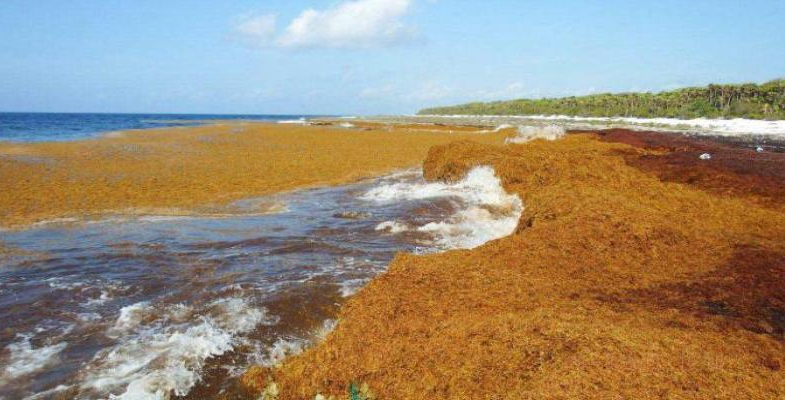
By Roberto Morejón
In the heat of the Fourth Internatinal Conference of Small Island States held in Antigua and Barbuda, representatives of several of them brought up the challenge of a new enemy, the Sargasso Seas.
Grenada will host a meeting of Caribbean nations next September to examine innovative mechanisms to confront the invasion of sargassum, a macroalgae whose decomposition generates stench and dulls the visuality of tourist paradises.
The concern of Grenada and neighboring States have grounds, as experts advise adopting responses to a phenomenon that affects more beaches every year.
With great impact on biodiversity and socioeconomic in areas highly dependent on foreign vacationers, sargassum floats in the sea, but when it accumulates it disturbs the survival of marine species.
Corals are among those most visibly affected by sargassum, but they are not the only ones, because researchers have detected the death of organisms from 78 species of wildlife.
With more than 350 species, only two with their gas vesicles move faster, to the point of becoming more visible in the tropical Atlantic, from Africa to the Gulf of Mexico, passing through the Caribbean.
Experts recommend using sargassum in agriculture, biofuel production and other industries.
Barbados is promoting a project together with the University of the West Indies and a British institution with a view to obtaining benefits from the phenomenon.
If the plan, which involves burying the algae on the seabed to absorb carbon dioxide emissions, is successful, it would extend to neighboring countries, but in the meantime we must deal with health and economic problems generated by proliferation.
And there are not enough resources for cleaning, since the process can fluctuate between 300 thousand dollars and 1.5 million dollars per year per kilometer of beach.
Like many other problems related to climate change, the Caribbean must now contend with this type of macro algae, without taking its eyes off the anti-hurricane programs and the rise in sea level.
Mitigating climate change on the planet could be an incentive in the fight against this floating antagonist.

